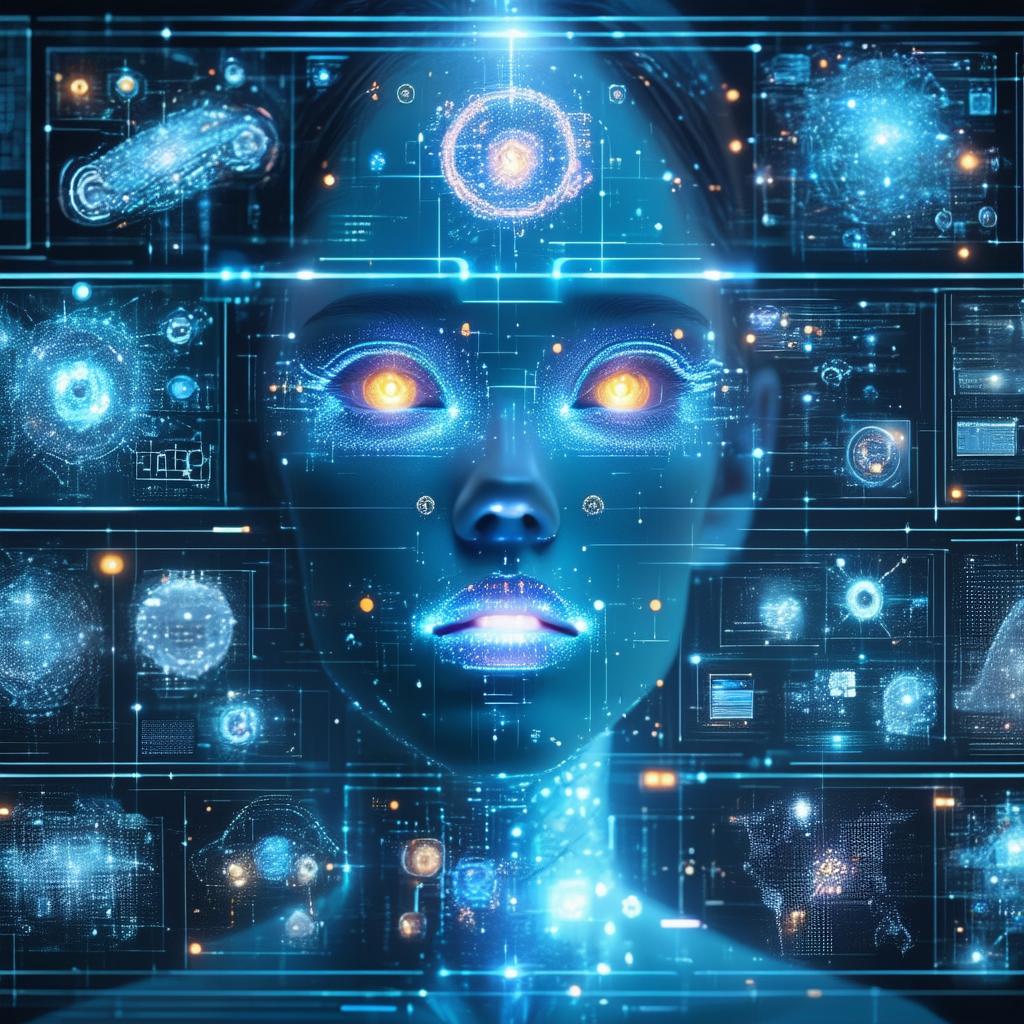Introduction: What is AI?
Artificial Intelligence (AI) is one of the most transformative technologies of our time. It refers to computer systems that can perform tasks requiring human intelligence, such as problem-solving, learning, decision-making, and understanding language. From voice assistants like Siri and Alexa to self-driving cars and medical diagnoses, AI is all around us, making life more convenient and efficient.
But how did AI evolve, and where is it headed? Let’s explore its history, applications, benefits, and future potential.
A Brief History of AI
AI may seem like a futuristic concept, but its origins date back several decades:
- 1950s-1960s: The birth of AI as a field of study. Alan Turing’s work laid the foundation for intelligent machines.
- 1970s-1980s: Early AI programs struggled with limited computing power, leading to setbacks.
- 1990s-2000s: Breakthroughs in computing and algorithms revived AI, with IBM’s Deep Blue defeating chess champion Garry Kasparov in 1997.
- 2010s-Present: AI exploded with deep learning, big data, and advancements in machine learning. Today, AI powers industries worldwide.
Types of AI: Understanding the Basics
AI can be classified into different types based on capabilities and functionalities:
- Weak AI (Narrow AI):
- Designed for specific tasks (e.g., chatbots, recommendation algorithms).
- Example: Netflix suggests9 movies based on your preferences.
- Strong AI (General AI):
- Theoretical AI that can think and reason like a human.
- Example: A machine with human-like intelligence (not yet fully developed).
- Machine Learning (ML):
- AI that learns from data to improve performance over time.
- Example: Spam filters learning to detect unwanted emails.
- Deep Learning:
- A subset of ML using neural networks to mimic human brain functions.
- Example: AI in self-driving cars analyzing road conditions.
How AI is Used in Everyday Life
AI is already an integral part of our daily experiences:
- Smart Assistants: Siri, Alexa, and Google Assistant help with tasks.
- Social Media: AI curates feeds, suggests friends, and detects fake news.
- Online Shopping: AI recommends products based on browsing history.
- Healthcare: AI helps diagnose diseases, develop treatments, and analyze medical images.
- Banking & Finance: AI detects fraudulent transactions and automates trading.
- Entertainment: AI enhances video games, creates music, and personalizes streaming content.
The Benefits of AI
AI brings numerous advantages across different sectors:
✔️ Efficiency & Automation: AI speeds up processes and reduces human effort.
✔️ Personalization: AI tailors recommendations to users, improving experiences.
✔️ Healthcare Advancements: AI assists in faster, more accurate medical diagnoses.
✔️ Cost Savings: AI reduces operational costs for businesses.
✔️ Enhanced Creativity: AI generates art, music, and even writes stories.
Challenges & Ethical Concerns of AI
Despite its benefits, AI comes with challenges:
⚠️ Job Displacement: Automation could replace some jobs, requiring workforce adaptation.
⚠️ Bias & Discrimination: AI systems may inherit biases from training data.
⚠️ Privacy Issues: AI raises concerns about surveillance and data misuse.
⚠️ Security Threats: AI-powered cyberattacks are a growing risk.
⚠️ Ethical Dilemmas: Should AI have decision-making power in sensitive areas like law enforcement?
The Future of AI: What’s Next?
AI is advancing rapidly, and here’s what we can expect:
🚀 AI in Space Exploration: AI-driven robots assisting space missions.
🚀 AI in Education: Personalized learning experiences for students.
🚀 Autonomous Vehicles: Widespread self-driving cars reducing accidents.
🚀 Human-AI Collaboration: AI as a partner rather than a replacement for human workers.
🚀 Medical Breakthroughs: AI-powered drug discovery and robotic surgeries.
As AI continues to evolve, its impact on society will be profound, shaping industries, jobs, and daily life.
Conclusion: Embracing the AI Revolution
Artificial Intelligence is not just a futuristic dream—it’s our present reality. From automating routine tasks to revolutionizing healthcare and entertainment, AI is transforming the world at an unprecedented pace. While challenges exist, the benefits far outweigh the risks when used responsibly.
The key lies in ethical AI development, regulations, and human oversight to ensure a positive and sustainable AI-driven future. As technology advances, embracing AI will be crucial for innovation and progress.
What are your thoughts on AI’s future? Do you think AI will be more helpful or harmful? Share your views in the comments below!
Key Takeaways:
✔️ AI is shaping industries, from healthcare to entertainment.
✔️ While AI enhances efficiency, ethical concerns must be addressed.
✔️ The future of AI is filled with exciting possibilities, from self-driving cars to space exploration.










+ There are no comments
Add yours